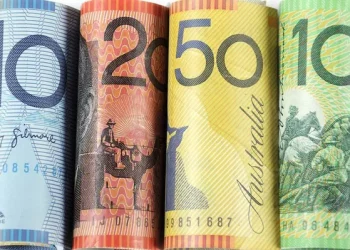In an interconnected global economy, understanding currency exchange rates is crucial for businesses, investors, travelers, and individuals alike. The conversion between different currencies, such as the Chinese Yuan (CNY) and the United States Dollar (USD), impacts trade, investment decisions, and personal finances. In this article, we delve into the dynamics of converting 139 Yuan to USD, exploring the current exchange rate, conversion calculations, factors influencing exchange rates, forecast and trends, financial advice, legal and tax implications, economic indicators, and global market impact to provide a comprehensive understanding of this currency conversion.
Current Exchange Rate:
As of the time of writing, the current exchange rate for converting Chinese Yuan (CNY) to United States Dollar (USD) stands at approximately 7.21 CNY to 1 USD. However, exchange rates are dynamic and subject to fluctuations due to various factors, including economic conditions, geopolitical events, central bank policies, and market sentiment.
Conversion Calculation:
To calculate the conversion of 139 Yuan to USD, one would divide the amount in Yuan by the current exchange rate. Using the current exchange rate of 7.21 CNY to 1 USD:
139 CNY÷6.36=19.28 USD
Thus, 139 Chinese Yuan is approximately equivalent to 19.28 United States Dollars.
Factors Influencing Exchange Rates:
Several factors influence exchange rates, including:
Interest Rates: Central bank policies regarding interest rates can affect currency values. Higher interest rates in a country often attract foreign investment, increasing demand for its currency.
Economic Performance: Strong economic indicators, such as GDP growth, low unemployment rates, and stable inflation, can bolster a currency’s value as it reflects a robust economy.
Political Stability: Political stability and government policies impact investor confidence and currency stability. Uncertainty or political turmoil can lead to currency depreciation.
Trade Balance: Countries with trade surpluses tend to have stronger currencies, while those with trade deficits may experience currency depreciation.
Market Sentiment: Investor sentiment and market speculation can cause short-term fluctuations in exchange rates, particularly in the forex market.
Forecast and Trends:
Forecasting exchange rate movements with certainty is challenging due to the complex interplay of various factors. However, analysts use economic data, geopolitical developments, and technical analysis to identify trends and make projections. The forecast for the CNY to USD exchange rate depends on factors such as trade relations between China and the US, monetary policies of respective central banks, and global economic conditions.
Financial Advice:
When converting currency, individuals and businesses should consider the following financial advice:
Timing: Monitor exchange rate trends and consider converting currency when rates are favorable.
Diversification: Diversify currency holdings to mitigate exchange rate risk.
Hedging: Use financial instruments such as futures or options to hedge against adverse exchange rate movements.
Costs: Be aware of transaction fees and exchange rate spreads charged by banks or currency exchange services.
Legal and Tax Implications:
Converting currency may have legal and tax implications, including:
Taxation: Profits or losses from currency exchange may be subject to capital gains tax in certain jurisdictions.
Regulatory Compliance: Compliance with anti-money laundering (AML) and know your customer (KYC) regulations may be required when conducting large currency transactions.
Foreign Exchange Controls: Some countries impose restrictions on currency conversion and capital flows, which may affect the ease of conducting transactions.
Economic Indicators:
Key economic indicators that influence exchange rates include:
Gross Domestic Product (GDP): GDP growth reflects the overall economic performance and can impact currency values.
Inflation Rate: High inflation rates erode purchasing power and can lead to currency depreciation.
Unemployment Rate: Low unemployment rates indicate a healthy labor market and may strengthen a currency.
Interest Rates: Central bank decisions regarding interest rates influence investor sentiment and currency values.
Global Market Impact:
Exchange rate movements have global implications, affecting trade, investment flows, and economic stability. Fluctuations in the CNY to USD exchange rate can impact:
International Trade: Changes in exchange rates alter the competitiveness of exports and imports, affecting trade balances.
Investment Flows: Investors may reallocate funds based on currency trends, impacting capital flows and asset prices.
Global Economic Stability: Exchange rate volatility can contribute to financial instability, particularly in emerging markets with high foreign currency debt.
Conclusion:
Understanding the conversion of 139 Yuan to USD requires consideration of various factors, including the current exchange rate, conversion calculations, influencing factors, forecasts, financial advice, legal and tax implications, economic indicators, and global market impact. While the exact value fluctuates based on market conditions, awareness of these dynamics enables individuals and businesses to make informed decisions regarding currency transactions, investments, and risk management strategies in an increasingly interconnected world economy.
Related Topics:























